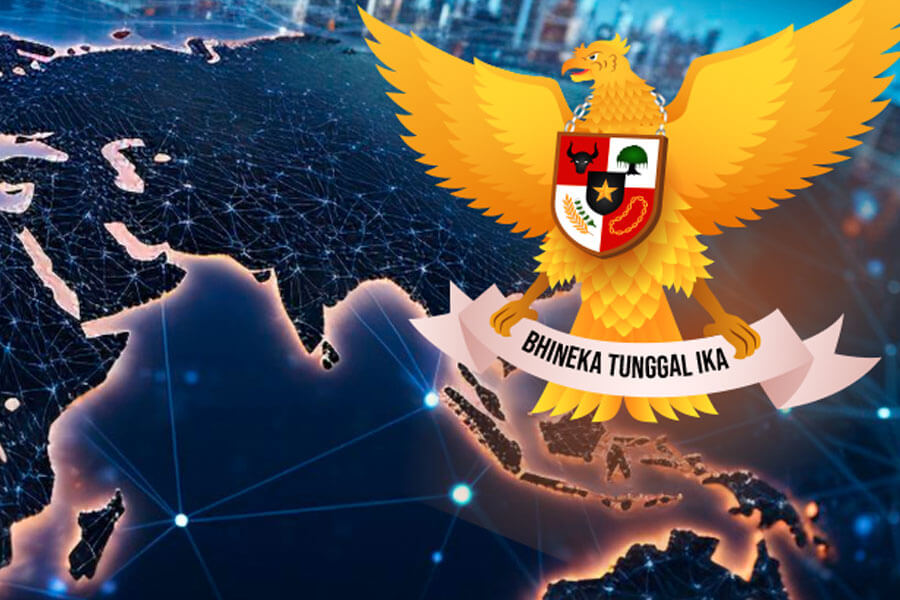Pancasila Improves a World View Based on Culture and Ethics

Pancasila, as the basic philosophy of the Indonesian state, has a central position in shaping the identity and direction of the nation’s development outlook. In this context, the concept of “welthanccung” (a view to improve something) which means improving the world, provides a new dimension to the understanding of the values of Pancasila, including “Bhinneka Tunggal Ika” as a guide for the development of nations and states in the world.
Repairing is an action taken to make better, to restore, or to improve the condition of something that is damaged, is not functioning, or is less than perfect. The repair process can apply in various contexts, ranging from physical repairs such as repairing tools or building structures, to non-physical repairs such as improving interpersonal relationships or mental states.
The importance of repairing lies in trying to return something to a better, more functional, or better condition than before. This involves identifying problems or deficiencies, finding solutions, and implementing appropriate actions to make improvements.
Furthermore, and more broadly, this thinking also reflects the aspiration to achieve global harmony and progress, where Pancasila is not only interpreted as a national view. But also as a basis for formulating solutions to world challenges. Welthanccung based on Nusantara ethics highlights the importance of combining local values with global demands, making Pancasila a guide for actions that support holistic improvement of the world.
In this relevance, Bung Karno really emphasized the importance of Nusantara ethical values in the context of Pancasila. Ir. Soekarno always emphasized that Pancasila was the ideological foundation for the Indonesian nation, and in Pancasila there were values that were also reflected in Nusantara ethics. There is a compatibility between the values in Pancasila and the values that have long existed in the culture and life of the people of the archipelago.
Then it became clear that Bung Karno described Nusantara ethics as the moral foundation underlying the principles of Pancasila. Concepts such as social justice, unity, democracy which is understood as togetherness, and human dignity are the values contained in Nusantara ethics. And this is in line with the value of Pancasila that was taught to us. So to explore and strengthen the ethical values of the archipelago, is a way to strengthen the moral foundation of the Indonesian nation. This is in line with efforts to build strong national character and identity within a democratic state.
By integrating this concept into Pancasila, we can create a sustainable framework, respect cultural diversity, and stimulate positive development at the national and international levels. So in the context of globalization, this concept becomes increasingly important because it offers an approach that is rooted in local wisdom, while still taking global dynamics into account.
In facing the challenges of globalization, an approach based on Indonesian ethics shows its uniqueness by taking wisdom from local values and cultural traditions in the archipelago. This helps communities maintain their local identity and wisdom, while participating in the global sphere.
The concept based on Nusantara ethics in the context of globalization also emphasizes inclusivity and adaptability. This creates space for international collaboration, which is beneficial and respectful, and creates a solid foundation for the betterment of the world. To be more harmonious and sustainable amidst the complexity of today’s global challenges.
So here Pancasila confirms local and universal values, the sustainability of which creates the basis for efforts to find a balance between modernity and tradition. This can help Indonesia manage the impacts of globalization by maintaining its distinctive values without isolating itself from global progress and innovation.
In the context of globalization, this also brings various challenges. In its continuity, Pancasila also functions as a unitary glue for Indonesian society. With this, Indonesia can play a stronger role in the global scenario, build a positive image, and contribute to a more peaceful and just world order.
This is not tendentious, because it is impossible to forget the inclusive power of Pancasila and the Archipelago Ethics. As local wisdom values, this ethic includes diversity and recognizes universal values. By promoting intercultural dialogue, cultural and religious diversity, Pancasila and Nusantara Ethics can provide an inclusive and comprehensive foundation for improving the world.
This view is not an attempt to exclude other views, but to create continuity of values between local and global. Furthermore, encouraging democracy based on a constitution implemented by law enforcers who are moral, humane and not penetrated by collusion, corruption or nepotism, and sustainable development, shared prosperity, as well as strengthening unity are goals that support each other and reflect the spirit of mutual cooperation and global cooperation. By consistently applying these values, Indonesia can act as a positive agent in the global arena, proving that local values can have a significant global impact.
In facing the complexity of global challenges, especially in the context of endemics, climate change, and national conflicts in the constitutional and legal fields, as well as national security ahead of the 2024 elections, as well as internationally, building a better world is not an impossible concept. On the other hand, Pancasila and Ethics, Indonesian culture can be a strong guide, providing a constitutional and ethical foundation to guide policy and action at the national and international levels.
Thus, it can be argued that seeing Pancasila as improving the world based on Indonesian culture and ethics is not just an idealistic dream. Rather, it is a call to recognize and utilize national character and local wisdom as valuable contributions to a more just, sustainable and harmonious world order. With hard work, collaboration and global commitment, this concept can become a reality that colors the dynamics of an increasingly connected world.
(Prof. Dr. Ermaya Suradinata, SH, MH, MS, is the former Director General of Social and Political Affairs of the Indonesian Ministry of Home Affairs, Chancellor of IPDN, and former Governor of Lemhannas RI.)
